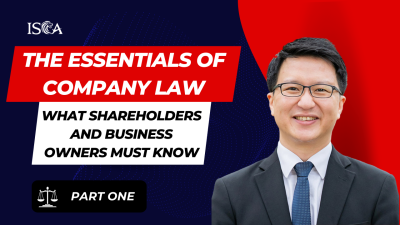Synopsis:
When the company suffers a legal wrong, it’s the board of directors that decides whether to take action. But what if the wrongdoers are the directors themselves? For minority shareholders, this can be a frustrating and high-stakes dilemma.
In Part 1 of this two-part series, we unravel the complex but critical distinction between corporate wrongs (wrongs done to the company) and shareholder wrongs. You’ll explore the legal frameworks that allow shareholders to step in when those in power fail to act — including the famous Rule in Foss v Harbottle, the concept of ratification, and the more modern and plaintiff-friendly statutory derivative action under s 216A.
By the end of this module, you will:
Understand the difference between corporate wrongs and shareholder wrongs — and why it matters.
Recognise the limits of the company’s internal decision-making when directors are at fault.
Grasp the common law approach to shareholder remedies and its limitations.
Learn how the statutory derivative action under s 216A empowers shareholders to seek justice.
The Essentials of Company Law - What Shareholders and Business Owners Must Know (Part 2) will focus on personal wrongs suffered by shareholder, and the statutory protections available under s 216 of the Companies Act.
Intended For:
Competency Mapping:


